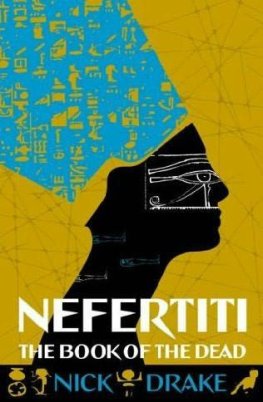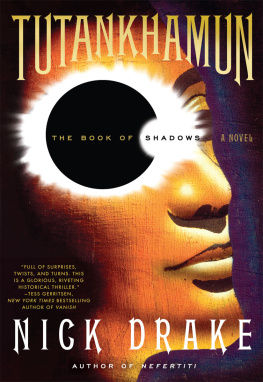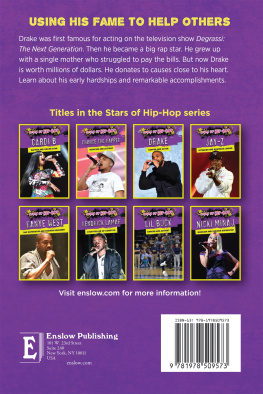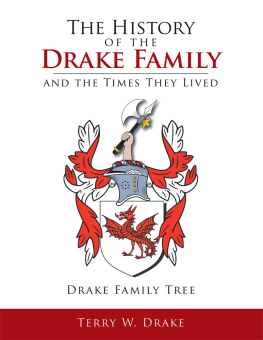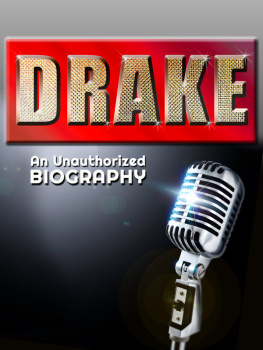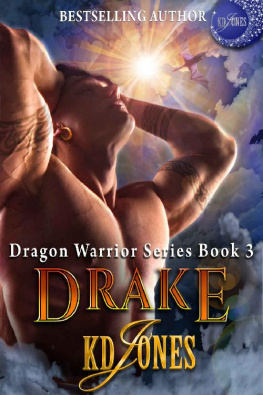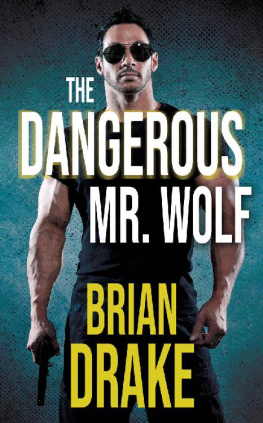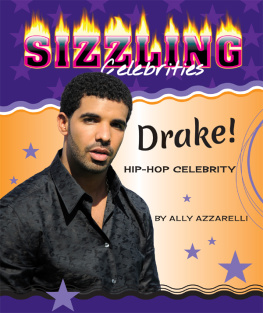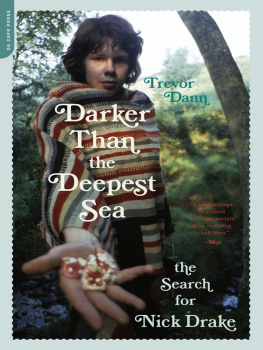Nick Drake - Egypt
Here you can read online Nick Drake - Egypt full text of the book (entire story) in english for free. Download pdf and epub, get meaning, cover and reviews about this ebook. genre: Detective and thriller. Description of the work, (preface) as well as reviews are available. Best literature library LitArk.com created for fans of good reading and offers a wide selection of genres:
Romance novel
Science fiction
Adventure
Detective
Science
History
Home and family
Prose
Art
Politics
Computer
Non-fiction
Religion
Business
Children
Humor
Choose a favorite category and find really read worthwhile books. Enjoy immersion in the world of imagination, feel the emotions of the characters or learn something new for yourself, make an fascinating discovery.

- Book:Egypt
- Author:
- Genre:
- Rating:3 / 5
- Favourites:Add to favourites
- Your mark:
- 60
- 1
- 2
- 3
- 4
- 5
Egypt: summary, description and annotation
We offer to read an annotation, description, summary or preface (depends on what the author of the book "Egypt" wrote himself). If you haven't found the necessary information about the book — write in the comments, we will try to find it.
Egypt — read online for free the complete book (whole text) full work
Below is the text of the book, divided by pages. System saving the place of the last page read, allows you to conveniently read the book "Egypt" online for free, without having to search again every time where you left off. Put a bookmark, and you can go to the page where you finished reading at any time.
Font size:
Interval:
Bookmark:
Nick Drake
Egypt
Save me from that God who steals souls. Who laps up corruption. Who lives on what is putrid. Who is in charge of darkness. Who is immersed in gloom. Of whom those who are among the dead are afraid.
Who is he?
He is Seth.
The Book of the Dead, Spell 17

Part One
You shall be decapitated with a knife, your face shall be cut away all round. Your head shall be removed by him who is in his land. Your bones shall be broken. Your limbs shall be cut off.
The Book of the Dead, Spell 391
Year 4 of the Reign of King Ay, Gods Father, Doer of Right
Thebes, Egypt
I stared down at five severed heads that lay in the dust, at the godforsaken crossroads, in the small dark hour before dawn.
It was cold, and I drew my old Syrian woollen cloak closer around me. The night sky was moonless. The city was all shadows. Doors and windows were shut. No early workers, up before dawn on their way to another long days labour, paused to observe the spectacle. No one would dare to approach a scene like this. Not in these dark times. The old phrase came to me unbidden: The earth is in darkness as if in death Only the stray dogs of Thebes howled to each other across the districts of the city, from the poor slums to the rich suburbs, as if giving voice to the ka spirits of these murdered Nubian boys, hungry for sustenance as they flew between this world and the next.
Under the setting stars shimmering in the ocean of the heavens, a few officers of the city Medjay moved about in the flickering light of their torches, chatting nonchalantly, their shadows wavering on the mud-brick walls of the nearby dwellings. A few nodded at me; others didnt. They had already carelessly trampled their sandals all over the crime scene, destroying any evidence that might have remained. Not that it would matter, for the investigation would be cursory at best. Massacres like this had become commonplace, and the gangs who committed them with impunity seemed to have taken control of the poor districts. They trafficked in opium, gold and human beings, trapping and selling young girls and boys into dead-end prostitution. Their victims even included Medjay officers, fantastically tortured, then decapitated and dismembered for refusing to take the golden opportunity of corruption. Rival gangs slaughtered each other in score-settling bloodbaths along with their screaming girlfriends; the teenage sons and daughters of high-ranking bureaucrats were kidnapped and brutally murdered after the ransoms had been paid; and so, despite all the security and high walls gold could buy, no one in Thebes felt safe.
But these decapitated victims were just street kids-Nubian boys, with tattoos and braided hair, and little arrow amulets on leather necklaces to mark their gang membership. They would have run the low-level opium sales for their bigger brothers. They were from the poorest, most dismal of the slums; uneducated, without employment or prospects, vulnerable to the stupid outlaw mystique of the gangs. All bore the wounds of previous street battles: knife-scars on their cheeks, blotted and sunken eyes, blunted, misshapen noses, and ears deformed by beatings. None were older than sixteen-most were younger. Their childish faces now wore the empty look of disappointment common to the newly dead.
The boys heads were set in a neat row at the feet of their corpses, which had been laid side by side, so that they looked like innocent friends dreaming together. Their dusty hands and feet had been roughly, tightly bound with cheap cord-but when I examined them I was puzzled, for the knots were unusually expert. Also, when a man is beheaded, his blood pumps in arcs from the neck wound; but judging from the absence of any other bloodstains in the street dust, these boys must have been executed somewhere else, and then dumped here as a warning, probably from one gang to another.
I bent down to examine the wounds in better detail: the neck muscles and the spine of each boy had been severed by a single, powerful stroke, which suggested a practised, indeed an exemplary, skill. And the killer must have used a high-quality blade; perhaps a ceremonial khopesh scimitar, or a butchers long yellow flint blade, razor-sharp for eviscerating cattle. Knives have powers of protection and of retribution. The Guardians of the Otherworld carry knives, and so do the minor Gods of that dismal place, with their fearsome faces and their heads turned backwards; and so, clearly, did this killer. I could picture his excellent technique, and his unusual pride in his skill. This did not seem like the work of the usual brutal gang executioners.
In my years on the Thebes force, I had seen every kind of meaningless brutality enacted on the human body. Cruelty, rage, grief-and something others carelessly name evil-can reduce the strange collation of profanity and beauty which makes up each of us to an inanimate lump of decaying meat. I had stood in grim backrooms, and stooped over the twisted bodies of children battered to death. I had considered the ruined remains of young women face down in the still-warm shadows of their own blood. I had seen the matter of the brain-that peculiar ivory jelly, which some say is the repository of our thoughts and memories-dashed across mud-brick walls. I had seen the raw meat of our physical beings exposed as in a butchers shop; I knew how quickly youth and beauty bloat and stink, when the ka and ba spirits have departed.
I had seen much worse things than the sight of these five Nubian boys expertly decapitated heads. And yet it angered me deeply. Perhaps it was our apparent powerlessness to stop this tide of violence. Perhaps it was the Medjays obvious lack of interest in protecting the poor. Or perhaps I was simply growing old. The hair on my head was grey now, the glossy black of my youth a distant memory; my belly was still trim, but some dawns I felt my bones creaking, and the weight of the skin on my face, and a strange slowness in my blood when I rose to confront the new day.
I shook my head to dispel such pointless thoughts. And then I noticed something, just visible between the pale lips of one of the Nubian boys heads. I inserted my finger between his white teeth, and retrieved a folded slip of papyrus. It was sticky with blood and saliva. I carefully peeled it open. Neatly drawn in black ink was a strange sign: a black star with eight radial arrowheads. Gangs often left scrawled, barely literate messages with their victims body parts-all part of the grim ritual, the blood-soaked display of power. But usually the messages were banal: Learn Respect; Keep Silent; Be Afraid. This was different. It was not, for one thing, an Egyptian hieroglyph, for our stars have five points, and look nothing like what was before me.
Suddenly, a chariot, drawn by two tired little horses and accompanied by a running guard, clattered up the street, and Nebamun, Chief of the Thebes Medjay, descended. The officers, who until this moment had been sharing their usual diseased banter, straightened up in silence. Nebamun glanced over in my direction. I knew he would want this scene cleared up and the bodies disposed of before dawn broke, and the city awoke. There would, of course, be no proper investigation. Instead, a few likely culprits would be dragged off the streets of the slums, and tortured to confess, and then swiftly executed, as a sign to the world at large that the city Medjay could still do its job. Whatever their petty misdemeanours, these dead boys were still murder victims, and they deserved justice. But because they were poor Nubians they wouldnt get it; Nebamun-a man of this world, as he repeatedly claimed, justifying his shortcuts to justice, his casual corruption, and his remorselessly practical violence-would see to that. To talk of justice was to be out of date, old-fashioned and laughable. He was coming towards me. Against the rules, and with a corresponding touch of pleasure, I quickly hid the papyrus in my leather satchel, for further contemplation.
Font size:
Interval:
Bookmark:
Similar books «Egypt»
Look at similar books to Egypt. We have selected literature similar in name and meaning in the hope of providing readers with more options to find new, interesting, not yet read works.
Discussion, reviews of the book Egypt and just readers' own opinions. Leave your comments, write what you think about the work, its meaning or the main characters. Specify what exactly you liked and what you didn't like, and why you think so.

